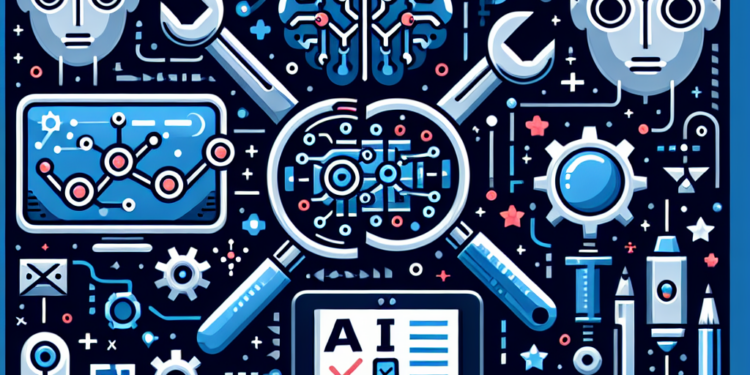Artificial Intelligence (AI) is a rapidly evolving field of technology that holds immense promise for improving various aspects of our lives. From healthcare to transportation, AI has the potential to revolutionize how we live, work, and interact with the world around us. However, developing AI applications can be a complex and challenging process that requires specialized knowledge, skills, and tools.
In recent years, a wide range of AI development tools have emerged to help streamline and simplify the process of building AI applications. These tools offer developers access to powerful algorithms, libraries, and frameworks that can enable them to create sophisticated AI models with relative ease. In this article, we will provide an expert review of some of the top AI development tools currently available on the market.
1. TensorFlow
TensorFlow is an open-source machine learning framework developed by Google. It is one of the most widely used AI development tools in the industry, known for its versatility and scalability. TensorFlow provides a comprehensive set of APIs for building and training deep learning models, making it ideal for a wide range of applications, from image and speech recognition to natural language processing.
One of the key features of TensorFlow is its support for distributed computing, allowing developers to train large-scale models across multiple GPUs and CPUs. TensorFlow also offers a high-level API called Keras, which simplifies the process of building neural networks and other deep learning models. Overall, TensorFlow is a powerful and versatile tool that is a must-have for any AI developer.
2. PyTorch
PyTorch is another popular open-source machine learning framework that is widely used in the AI community. Developed by Facebook, PyTorch is known for its flexibility and ease of use, making it a favorite among researchers and developers alike. PyTorch offers a dynamic computational graph that allows developers to define and modify their models on the fly, making it easier to experiment and iterate on new ideas.
PyTorch also provides a comprehensive set of libraries for building neural networks, as well as support for distributed computing. One of the standout features of PyTorch is its integration with Python, which allows developers to leverage the full power of the Python programming language for building and training AI models. Overall, PyTorch is a powerful and user-friendly tool that is well-suited for both beginners and experienced developers.
3. Microsoft Azure Machine Learning
Microsoft Azure Machine Learning is a cloud-based platform that offers a wide range of AI development tools and services for building, training, and deploying AI models. Azure Machine Learning provides a user-friendly interface that allows developers to easily create and manage their models, as well as access a wide range of pre-built algorithms and datasets.
One of the key features of Azure Machine Learning is its support for powerful automated machine learning (AutoML) capabilities, which can help developers quickly build and optimize AI models without the need for manual tuning. Azure Machine Learning also offers a range of deployment options, including integration with Azure Kubernetes Service for deploying AI models at scale.
4. Amazon SageMaker
Amazon SageMaker is a cloud-based machine learning platform developed by Amazon Web Services (AWS) that provides a wide range of tools and services for building and deploying AI models. SageMaker offers a range of built-in algorithms and pre-built models that developers can leverage to quickly build and train their own models.
One of the standout features of Amazon SageMaker is its support for end-to-end machine learning workflows, including data preprocessing, model training, and deployment. SageMaker also offers a range of powerful tools for model interpretation and debugging, making it easier for developers to understand and optimize their AI models. Overall, Amazon SageMaker is a comprehensive and user-friendly platform that is ideal for developers looking to quickly build and deploy AI applications.
5. IBM Watson Studio
IBM Watson Studio is a cloud-based platform developed by IBM that offers a wide range of tools and services for building and deploying AI models. Watson Studio provides a user-friendly interface that allows developers to easily create and manage their models, as well as access a wide range of pre-built algorithms and datasets.
One of the key features of IBM Watson Studio is its support for IBM Watson Machine Learning, a powerful tool that allows developers to train and deploy AI models on a scalable and secure infrastructure. Watson Studio also offers a range of collaboration tools, making it easier for teams to work together on AI projects. Overall, IBM Watson Studio is a comprehensive and versatile platform that is well-suited for developers looking to build and deploy AI applications.
In conclusion, AI development tools play a crucial role in enabling developers to build and deploy sophisticated AI applications. From open-source frameworks like TensorFlow and PyTorch to cloud-based platforms like Microsoft Azure Machine Learning and Amazon SageMaker, there are a wide range of tools available to help developers create powerful AI models. By leveraging these tools, developers can unlock the full potential of AI technology and build innovative solutions that can transform the way we live and work.













